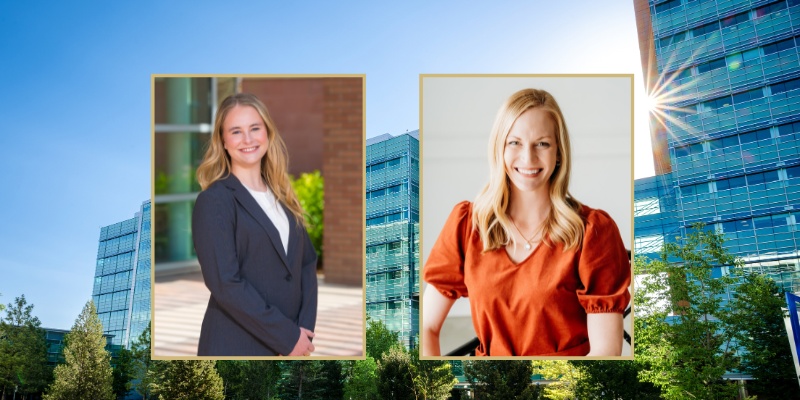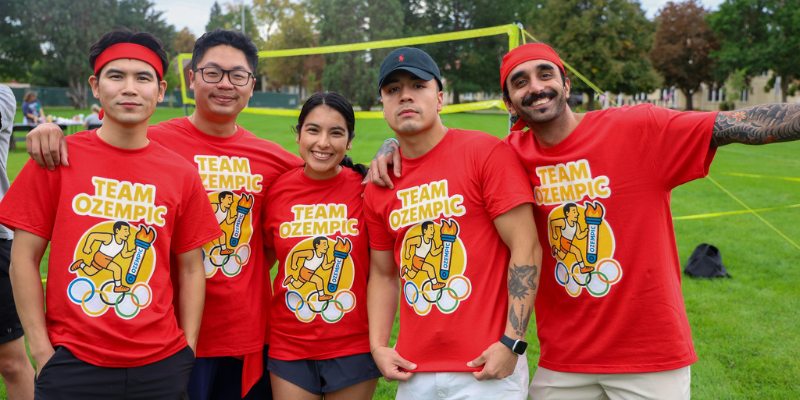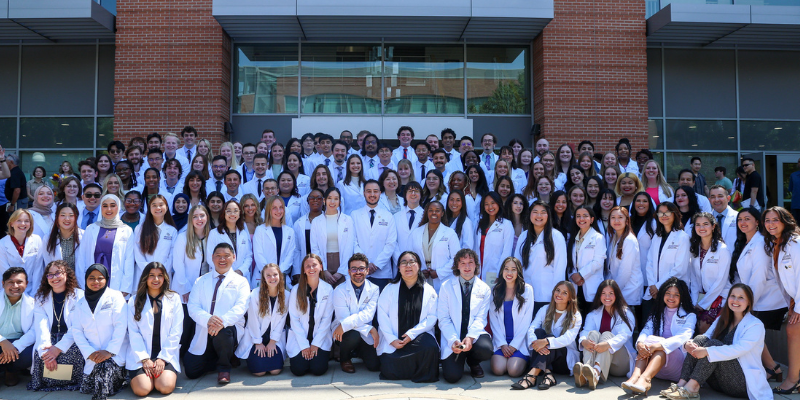Research is critical to healthcare, from improving treatments to finding causes, and CU Pharmacy’s PhD graduates are up for the challenge.
“One of my favorite parts about science,” said Lana Salah, “is that you leave it always with more questions than what you came into it with.”
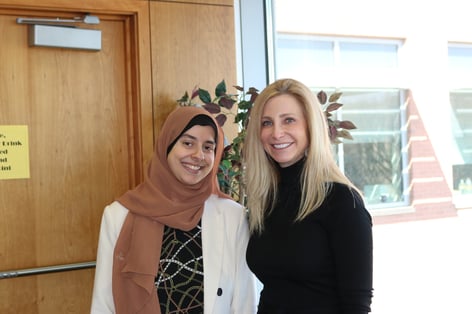
Lana Salah with Dr. Jen Kiser. |
Salah, who is graduating this spring with a PhD in Pharmaceutical Sciences, has been asking questions for as long as she can remember.
“From a young age, I was always going, ‘but why? And why?’” she explains.
As a soon to be graduate of the pharmaceutical sciences program, Salah spent her time at CU Pharmacy in the Colorado Antiviral Pharmacology Laboratory, under the guidance of Jennifer Kiser, PhD, PharmD. Dr. Kiser brought Salah in for her study on patients who were receiving hepatitis C treatments and also used recreational drugs or alcohol. Salah explains that a common thought among medical professionals is that high risk patients, such as the ones in this study, would not follow their medical regimen, thus making the treatment ineffective.
“What we found, was, that was not the case,” Salah said.
Using a dried blood spot test to quantify phosphatidylethanol, an alcohol biomarker, the team was able to identify that participants who used alcohol were sticking with their prescribed therapy. As Salah explained, this is good news, because it means that these patients can and should be treated, and especially with something like hepatitis C, they can be cured.
Salah, a former high school chemistry teacher, decided that she wanted to be a clinical pharmacologist after teaching taught her something about herself.
“I really loved teaching science, but I love doing science,” Salah said.
PhD toxicology graduate Keegan Rogers also started out with different goals.
“Originally I wanted to be a physician,” Rogers said. “My undergraduate advisor said to me ‘you’re very talented at research, and you can do medical research’, which brought me to the School of Pharmacy, working with Dr. Jared Brown in toxicology.”
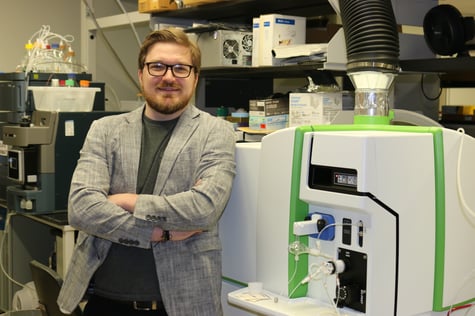
Keegan Rogers in the toxicology lab. |
The toxicology program focuses on the molecular mechanisms underlying the toxic effects of therapeutic agents, industrial chemicals, and environmental toxins. In simple terms, they are finding answers to complex medical questions. For Rogers, he wants to know what is toxic in things we ingest, are exposed to, and breathe in. His thesis focused on what was causing chronic kidney disease in agricultural workers in developing countries.
“Nobody knows what causes this right now,” he said. “There is some controversy around it, because scientists have different conclusions.”
What Rogers found, and hypothesized, was that the chronic kidney disease was related to the crop itself. He looked at what crops were harvested and found that the major crops were sugar can and rice.
“In these countries, to facilitate a harvest, the workers will burn the crop. It burns the husk, and it makes it easier to harvest the actual crop,” he explains.
Rogers looked at what was being released into the atmosphere and found a correlation between what was in the air after a crop burning and what was highly concentrated in the diseased kidney. He defended his thesis in December 2022, and while he waits for commencement, he works with ChemRisk (now Stantec), as a toxicology consulting firm. His focus is on e-cigarettes, and what happens to their toxicity when the carrier oil becomes a vapor and is inhaled.
“During my research, I have a lot of people ask me ‘what is the end game?’ and so I need to find the answers to see how it is going to impact the population,” Rogers said.
After all of these questions, and answers, how do scientists unwind?
“Scrapbooking,” chuckles Salah. “I enjoy that it allows me to be creative, in a different way.”
"It’s cooking,” Rogers said. “It reminds me of doing all the benchtop science in lab, but the result is way more delicious."


